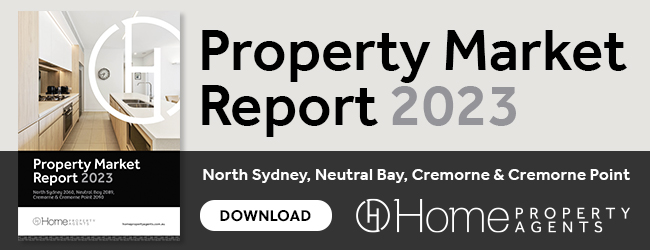
Why you should check comparative properties when selling
One of the first things you need to do when you are preparing to sell your Neutral Bay home is to get an understanding of what your property is worth. While you may have a fair idea, the truth is prices are changing fast at the moment and values are very tricky to keep up with.
The best way to get this idea of what your home will sell for is not to see what homes are advertised as but rather to see what prices they are actually achieving.
Finding comparative sales prices can be tricky, but they can give you a realistic estimate of the sale price your home may achieve.
What are comparative sales?
Sales of homes in your local area that are the most similar to your place are considered comparative sales.
If you own a three-bedroom, two-bathroom, second-storey apartment with a balcony and a view in Neutral Bay, then the recent sale price of another three-bedroom, two-bathroom, second-story apartment with a balcony and a view in Neutral Bay will most likely be a strong indicator of what your home is worth right now.
‘Recent’ is the key word. Even data from earlier in the year can give an incorrect indication of your home’s current value.
Why look at comparative sales prices?
While it’s a perfectly reasonable place to start, looking at the listed prices of properties in your area is not the best way to get an accurate idea of what your home might sell for.
For one thing, it’s not unusual for agents to list a reasonable price, only for the final amount to be pushed up by buyers who are keen to get into the area.
On the other hand, some listings are wishful thinking, and the vendors are unlikely ever to get the price they are asking for.
Having a look at comparative sales prices right at the beginning of your sale also puts you in good stead as you move forward. You can make realistic plans in budgeting for your next property and be better prepared for the price you are most likely to pay.
It also means you will be able to spot if real estate agents are giving you an over-the-top estimate when you first approach them for a valuation. Some valuations are too good to be true but if you understand comparable prices you can ask why an agent has suggested a price higher than their competitors.
Finding comparative sales prices
One issue with comparative sales prices is that they are not always easy to find.
Websites don’t often advertise what price properties have sold for, so you may have to do a bit of extra hunting to find comparative sale prices for your area.
The first thing to try is heading to a website like domain.com or realestate.com, typing in your suburb and clicking the ‘sold’ tab. You can refine your search by adding filters like ‘number of bedrooms’, ‘property style’ and other relevant information to ensure that the properties that come up are adequately comparable to your own. You might also be able to find sales data via the On The House website.
If you engage a busy local agent to sell your property they will probably be able to share information based on their recent sales.
How much are other homes selling for?
Sometimes, a sale price will seem low in comparison to neighbouring properties. In this case, it may be because the sellers wanted a quick result and were happy with the first offer because they just wanted to move on.
Every now and then, a place will sell for much more than a comparable home right next door. There can be a factor such as a better view or it could be that several enthusiastic bidders pushed the final outcome up at auction.
Your next step
With a general idea of what price your home might sell for based on your own research, it is time to speak to an agent.
A better question to start with than “How much will my home sell for?” is “How much have you sold similar homes for recently?”
Ready to sell your home in Neutral Bay or on the lower north shore? Contact HPA for an up to date appraisal today.




